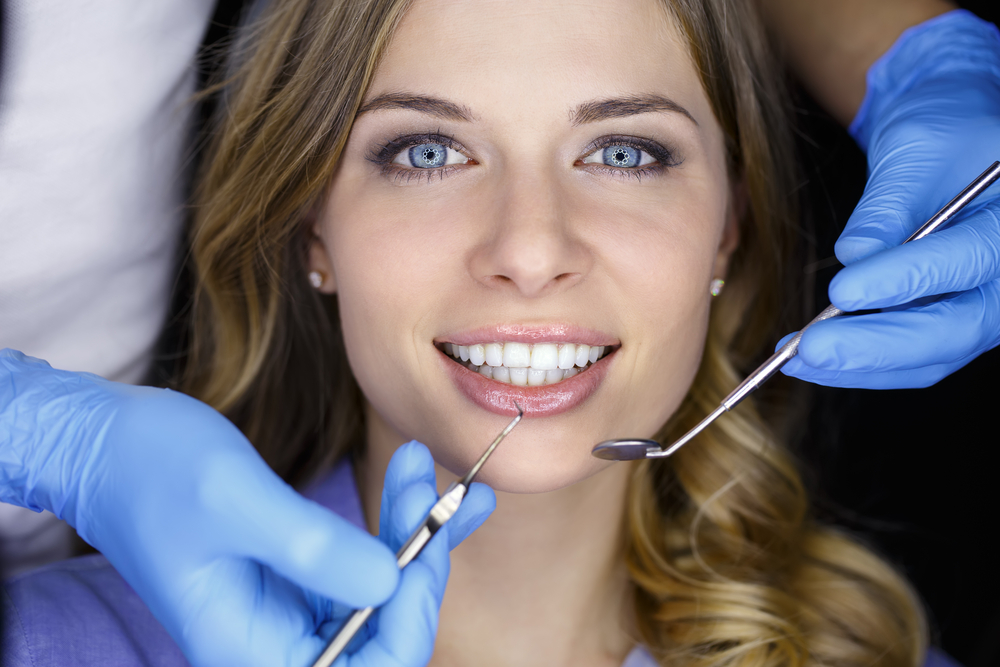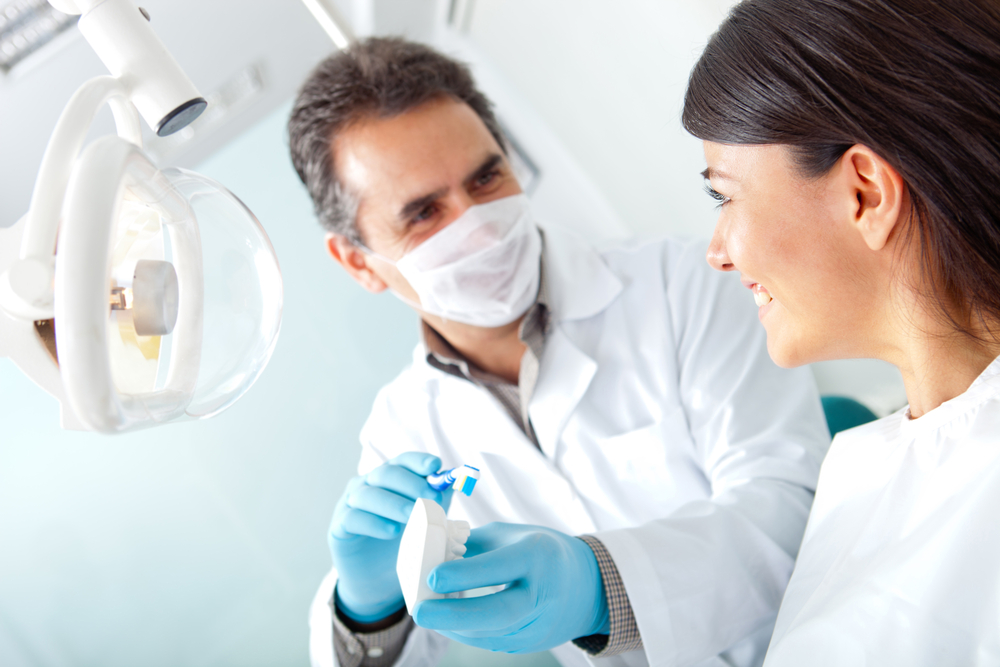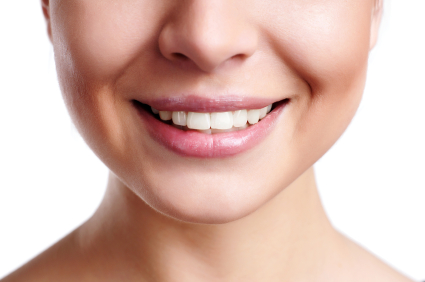Tag: dental cleaning near me
Importance of Dental Exam & Teeth Cleaning in Watertown MN
No matter how diligent your at-home oral care routine is, harmful bacteria can still hide in your mouth in places that are hard to reach with regular brushing and flossing. After some time, the accumulated plaque and tartar can pose serious risks to your oral health and even affect your overall health if the bacteria spreads from your mouth to various body tissues. As such, it should be removed by a dental professional using specialized oral cleaning tools at a recommended interval.
Bacteria Growth in Your Mouth
The warm and moist environment in your mouth is very hospitable for the growth of bacteria, which manifests as:
- Plaque – the biofilm formed by bacteria colonies living in your mouth. It is responsible for producing acid that can wear your teeth causing cavities and/or damage gums if not continuously removed by regular brushing
- Tartar or calculus – forms when plaque is not removed properly, causing it to calcify and mineralize into a hard substance that attracts more harmful bacteria. Calculus can only be removed during dental cleanings using specialized tools.
Dental Cleanings Prevent Gum Disease
Bacteria in your mouth can accumulate to a point where it becomes active and destructive, resulting in gum infection. The first stage of gum infection is known as gingivitis, and is characterized by gum inflammation, swelling, and reddening. Due to sensitive gums, you may also notice some blood on your toothbrush or when rinsing your mouth after brushing. Fortunately, gingivitis can be successfully treated with professional dental cleaning and an improved at-home oral care routine.
If there are no interventions, gingivitis can advance to a more serious case of gum disease known as periodontitis or periodontal disease. It affects the foundation of your teeth – the bone tissue connecting your teeth to the jaw. If not treated promptly, periodontitis can cause severe bone loss that loosens your teeth with some even falling out. Though it’s irreversible, dental professionals can help you manage the symptoms and improve your oral health.
Schedule Your Dental Cleaning Today
Your dentist will examine your teeth and gums to determine the best type of dental cleaning in Watertown MN to improve your oral health and reduce the risk of advanced gum disease and cavities.
Dental Cleanings: Regular (Prophy) vs Deep Cleaning | Watertown MN
There are several types of dental cleanings that may help to remove accumulated plaque and tartar in your mouth, and improve your overall oral health. The American Dental Association recommends that prophylaxis cleanings be performed every six months by your general dentist as a part of your preventative dental care. Prophylaxis is also referred to as “teeth cleaning”, and involves the removal of accumulated plaque from the surface of your teeth above the gumline, as well as tooth polishing.
Prophylaxis is performed using fine hand instruments, as well as an ultrasonic scaler and a polishing cup and paste if there are no signs of gum disease. Generally, a good candidate for prophylaxis should have firm, pink gums with no bleeding, and the gum pockets should be within the healthy range of 1 – 3mm. Though the ADA recommends prophy cleaning every six months, people at high risk of gum disease and other oral issues may require more frequent cleaning at 8 – 16 week intervals.
Will Prophylaxis Cleaning Work for Me?
There are some cases where regular prophylaxis cleaning may not be enough to improve your oral health. Your dental professional will examine your teeth and gums and then determine the best type of alternative cleaning for your individual needs. The other types of dental cleaning include:
- Full Mouth Debridement – it is recommended for people whose teeth have not been professionally cleaned for more than a year, resulting in heavy plaque and tartar (calculus) build-up. This procedure is typically performed before an oral examination and diagnosis to ensure good visibility of the actual condition of your mouth
- Scaling and root planing – commonly referred to as “deep cleaning”, this procedure is recommended for patients who exhibit signs of periodontal disease, such as deeper gum pockets (over 3mm), inflammation and bleeding gums, accumulation of plaque and tartar below the gumline, and/or loss of bone tissue supporting the teeth.
- Periodontal maintenance – following treatment for periodontal disease, your dental professional may recommend this specialized cleaning every 8 – 12 weeks as part of your ongoing treatment for chronic periodontal disease to reduce the risk of adverse symptoms.
Please visit your dentist to discuss your dental cleaning in Watertown MN today.
Looking For A New Dentist? Dental Exam & Cleaning | Watertown MN
The importance of your exam and cleaning
The most basic dental appointment is also the most necessary: This is the bi-annual checkup and clean. Routine exams and cleanings create a strong base for your oral health. Keeping up with these appointments will help you maintain exceptional oral health and avoid disease or decay.
Dental exams are typically quick and easy. You’ll spend about 45 minutes to an hour at the office for a routine exam with your dentist!
Dental Exam
At the exam, we will be checking your teeth with a few “bite downs” and “open wides”. The process of looking for any dental issues is rather straightforward. Depending on your case, the dentist might also want to do a quick set of X-rays as well.
Dental Cleaning
The cleaning portion of the exam is more effective than any toothbrush. Following the removal of plaque and tartar, your dentist will conduct the deepest clean possible, using a high-powered electric brush. Your dentist will then floss your teeth for you and will finish off the session with a fluoride treatment that protects teeth against cavities for months on end. You will leave the dentist’s office not only looking sharp but also feeling fresh.
3 Types of Dental Cleanings: Which Is Right for Me? Watertown MN
Your general dentist can provide different types of dental cleanings depending on your unique dental needs. The American Dental Association recommends that you get prophylaxis cleanings at least twice a year. Prophylaxis, which is also referred to as “teeth cleaning”, involves the removal of accumulated plaque from your teeth, which cannot be removed by regular brushing at home.
A good candidate for prophylaxis should have firm, pink gums with no bleeding or gum pockets over 3mm. However, there are various situations that may require you to get a different kind of dental cleaning, such as gum disease, periodontitis, or staying too long between prophylaxis cleanings. Depending on your individual case, your dentist may recommend other types of cleanings such as:
Full Mouth Debridement
If your teeth have heavy plaque and tartar (calculus) build-up, perhaps because you’ve missed a few prophylaxis cleanings, then your dental professional may recommend full mouth debridement using hand tools and a micro-ultrasonic scaler to clean your teeth and restore the health of your mouth. This procedure is typically performed before an oral examination and diagnosis to ensure good visibility of the actual condition of your mouth.
Scaling and Root Planing
Commonly referred to as “deep cleaning”, this procedure is recommended for patients who exhibit signs of periodontal disease, such as deeper gum pockets (over 3mm), inflammation and bleeding gums, accumulation of plaque and tartar below the gumline, and/or loss of bone tissue supporting the teeth. This process may require the dental professional to numb the treatment area to avoid sensitivity when scaling and cleaning the roots of your teeth.
Periodontal Maintenance
Periodontal disease is chronic and irreversible. So following initial treatment for periodontal disease through scaling and root planing or periodontal surgery, your dental professional may recommend this specialized cleaning every 8 – 12 weeks as part of your ongoing maintenance to reduce the risk of gum disease recurrence.
Need Dental Cleaning Today?
If you’ve experienced red, tender, bleeding gums, bad breath, or you just want to be proactive about your oral health, then you should contact our office to find out more about your individual dental cleaning in Watertown MN.
Dental Cleanings & Checkup in Watertown MN
At your six-month dental checkup, your dentist should perform dental cleaning as a preventive procedure to maintain healthy teeth and gums. Professional teeth cleaning is necessary to remove accumulated plaque and tartar from in between your teeth and gums, which may be responsible for various oral issues such as cavities, gum disease, bad breath, oral cancer, and so on.
During your routine dental visit, which should be every 6 – 12 months, your dental hygienist will first examine your teeth before cleaning them. The examination involves physical assessment of your teeth, gums, tongue, and the entire mouth for any concerns using a small mirror. If there are any noticeable problems, the dental hygienist will consult the dentist to determine whether it’s safe to proceed with the cleaning. But in some cases, it may be necessary to first clean your teeth and then perform the examination in order to obtain an accurate diagnosis. Your dental professional will determine the right sequence for your specific case.
What to Expect
Routine dental cleaning takes about 30 minutes depending on how long it has been since your last cleaning. This is because plaque will continuously calcify and mineralize on the surface of your teeth to form tartar. During this time, the dental hygienist will:
- Use a scaler to remove plaque and tartar from the surface of individual teeth, between the teeth, and around the gum line.
- Polish the teeth using a high-powered brush with a soft rubber cup. This not only removes any surface stains, but also makes your tooth surface smooth and shiny to make it harder for plaque to form.
- Perform professional flossing in order to thoroughly clean the area between your teeth to remove any leftover plaque and toothpaste from the previous steps.
- Rinse your mouth using a solution containing liquid fluoride to remove any debris and clean your mouth.
- Apply flavored fluoride by putting it in flexible trays that are then placed over your teeth for 30 seconds. This helps to strengthen your teeth and enhance the protection against plaque and calculus.
Schedule Your Appointment
While many dental procedures can be dreadful, teeth cleanings are easily tolerated by most people because they’re not only simple and painless, but also an important part of maintaining your long-term oral health. To learn more about what to expect from a routine dental cleaning in Watertown MN, please contact our office today.
Teeth Cleaning Near Me, Watertown MN
There are both beneficial and harmful bacteria in your mouth. The beneficial bacteria aids in digestion, while the harmful kind is associated with gum disease, dental caries, bad breath, and many other oral issues. Through daily brushing and flossing at home, you can maintain a low level of harmful bacteria in your mouth to such a level that it doesn’t adversely affect your oral health in the short-term. Unfortunately, there are areas in your mouth that are hard to clean with a toothbrush, where bacteria may build up in your mouth and cause harm.
Professional cleaning helps to prevent this by targeting every corner of your mouth to remove built-up plaque and calculus. This offers many benefits, including:
- Reduced tooth wear and cavities from acids in the mouth – plaque, the biofilm formed by bacteria colonies living in your mouth, is responsible for producing acid that can erode your teeth, cause cavities, and damage your gums.
- Maintaining your bright smile – when plaque is not removed properly, it may calcify and mineralize into a hard substance (tartar) that not only changes the aesthetic appearance of your teeth, but also attracts more harmful bacteria. Tartar or calculus can only be removed during dental cleanings using specialized tools.
- Reduced risk of gingivitis – bacteria in your mouth can accumulate to a point where it becomes active and destructive, resulting in gum infection. The first stage of gum infection is known as gingivitis, and is characterized by gum inflammation, swelling, and reddening. Due to sensitive gums, you may also notice some blood on your toothbrush or when rinsing your mouth after brushing. Fortunately, gingivitis can be successfully treated with professional dental cleaning and an improved at-home oral care routine.
- Prevention of periodontitis – If there are no interventions, gingivitis can advance to a more serious, chronic, and irreversible case of gum disease known as periodontitis or periodontal disease. It affects the foundation of your teeth – the bone tissue connecting your teeth to the jaw. If not treated promptly, periodontitis can cause severe bone loss that loosens your teeth with some even falling out. Though it’s irreversible, dental professionals can help you manage the symptoms and improve your oral health.
Schedule Dental Cleaning Today
Professional dental cleaning can help you enjoy a healthy mouth and smile. Please visit your dentist for a thorough examination of your mouth and to determine the best type of dental cleaning in Watertown MN to improve your oral health.
Dental Cleanings Near Me, Watertown MN
While many dental procedures can be dreadful, teeth cleanings are easily tolerated by most people because they’re not only simple and painless, but also an important part of maintaining your long-term oral health. Ideally, dental cleanings should be performed every 6-12 months to prevent the buildup of plaque and tartar that can cause oral problems such as bad breath, cavities, gum disease, loose teeth, and so on. But your dentist may recommend shorter intervals if you’re at greater risk due to pregnancy, your lifestyle habits, or your general health.
So what exactly happens during a regular dental cleaning?
1. Tartar and Plaque Removal
The actual teeth cleaning process involves the use of specialized tools, such as scalers to remove plaque and calculus from the surface of individual teeth, between the teeth, and around the gum line. This step may take longer if it has been a long time since your last cleaning.
2. Polishing
When all the plaque and tartar has been removed from your teeth, the hygienist will use a special brush with a soft rubber cup. This not only removes any surface stains, but also makes your tooth surface smooth and shiny to make it harder for plaque to form.
3. Expert Flossing
This step helps to thoroughly clean the area between your teeth to remove any leftover plaque and toothpaste from the previous steps.
4. Rinsing
The dental hygienist uses a mouth rinse with liquid fluoride to remove any debris and clean your mouth.
5. Fluoride Treatment
As the final step, your dental hygienist may apply flavored fluoride by putting it in flexible trays that are then placed over your teeth for 30 seconds. This helps to strengthen your teeth and enhance the protection against plaque and calculus.
Following the cleaning, your mouth may feel fresher and your teeth appear brighter. This is because teeth cleaning helps to prevent and treat gum disease and maintain tooth health, but also enhance the appearance of your smile. To learn more about what to expect from a routine dental cleaning in Watertown MN, please contact our office today.
Importance of Dental Exam & Teeth Cleaning Watertown MN
No matter how diligent your at-home oral care routine is, harmful bacteria can still hide in your mouth in places that are hard to reach with regular brushing and flossing. After some time, the accumulated plaque and tartar can pose serious risks to your oral health and even affect your overall health if the bacteria spreads from your mouth to various body tissues. As such, it should be removed by a dental professional using specialized oral cleaning tools at a recommended interval.
Bacteria Growth in Your Mouth
The warm and moist environment in your mouth is very hospitable for the growth of bacteria, which manifests as:
- Plaque – the biofilm formed by bacteria colonies living in your mouth. It is responsible for producing acid that can wear your teeth causing cavities and/or damage gums if not continuously removed by regular brushing
- Tartar or calculus – forms when plaque is not removed properly, causing it to calcify and mineralize into a hard substance that attracts more harmful bacteria. Calculus can only be removed during dental cleanings using specialized tools.
Dental Cleanings Prevent Gum Disease
Bacteria in your mouth can accumulate to a point where it becomes active and destructive, resulting in gum infection. The first stage of gum infection is known as gingivitis, and is characterized by gum inflammation, swelling, and reddening. Due to sensitive gums, you may also notice some blood on your toothbrush or when rinsing your mouth after brushing. Fortunately, gingivitis can be successfully treated with professional dental cleaning and an improved at-home oral care routine.
If there are no interventions, gingivitis can advance to a more serious case of gum disease known as periodontitis or periodontal disease. It affects the foundation of your teeth – the bone tissue connecting your teeth to the jaw. If not treated promptly, periodontitis can cause severe bone loss that loosens your teeth with some even falling out. Though it’s irreversible, dental professionals can help you manage the symptoms and improve your oral health.
Schedule Your Dental Cleaning Today
Your dentist will examine your teeth and gums to determine the best type of dental cleaning in Watertown MN to improve your oral health and reduce the risk of advanced gum disease and cavities.
Teeth Cleaning & Dental Exams in Watertown MN
Dental cleaning is a simple, painless, and non-invasive preventive dental procedure that seeks to reduce the risk of dental issues such as cavities, gum disease, and bad breath by removing built-up plaque and tartar. Patients often experience some mild vibrations, cooling mist of liquid, and a bit of pressure during scraping, though this doesn’t cause any discomfort. On the contrary, the feeling can be quite satisfying in knowing that you can keep enjoying your healthy teeth and smile for longer.
Ideally, dental cleanings should be performed every six months, but your dental hygienist may recommend shorter intervals if you’re at greater risk due to pregnancy, your lifestyle habits, or your general health. Moreover, if you have gum disease, your dental hygienist may recommend deep scaling – as opposed to regular dental cleaning – to remove plaque from your tooth roots as well.
Generally, the first step before any dental cleaning is an examination of your mouth. The dental hygienist needs to physically check your teeth, gums, tongue, and the entire mouth for any concerns using a small mirror. If there are no problems, then the procedure for dental cleaning may be as follows:
1. Plaque and Tartar Removal: A scaler is used to remove plaque and calculus from the surface of individual teeth, between the teeth, and around the gum line. This step may take longer if it has been a long time since your last cleaning.
2. Polishing: A high-powered brush with a soft rubber cup and gritty toothpaste helps to gently scrub and polish your teeth. This not only removes any surface stains, but also makes your tooth surface smooth and shiny to make it harder for plaque to form.
3. Expert Flossing: This step helps to thoroughly clean the area between your teeth to remove any leftover plaque and toothpaste from the previous steps.
4. Rinsing: The dental hygienist uses a mouth rinse with liquid fluoride to remove any debris and clean your mouth.
5. Fluoride Treatment: As the final step, your dental hygienist may apply flavored fluoride by putting it in flexible trays that are then placed over your teeth for 30 seconds. This helps to strengthen your teeth and enhance the protection against plaque and calculus.
To learn more about what to expect from a Cleaning and Exam in Watertown MN procedure, please contact your dental office today.
Dental Check Ups & Teeth Cleaning Near Me, Watertown MN
Many people today know about the importance of oral health and how it affects your overall health. Optimal oral hygiene requires a combination of proper and consistent daily oral hygiene practices at home and routine professional dental cleanings. This helps to protect your teeth from decay and keep the gums healthy, while keeping your smile bright.
However, one thing that may not be clear is why the American Dental Association recommends dental cleanings every six months. Generally, brushing your teeth twice a day and flossing every day should help to remove most of the harmful bacteria from your teeth and mouth. But the small quantity of bacteria that remains may still pose a threat to your oral health over time, if it’s not removed.
Some of the risks include:
- Excessive tooth wear and cavities from the acid produced by plaque
- Bad breath from improper teeth cleaning
- Teeth discoloration from the colored foods you consume and calcification and mineralization of plaque in the form of tartar or calculus, which attracts more harmful bacteria
- Minor gum infection or gingivitis, which is characterized by gum inflammation, swelling, and reddening. Due to sensitive gums, you may also notice some blood on your toothbrush or when rinsing your mouth after brushing.
- Advanced gum infection – If there are no interventions, gingivitis can advance to a more serious case of gum disease known as periodontitis or periodontal disease. It affects the foundation of your teeth – the bone tissue connecting your teeth to the jaw.
- Exacerbated health issues – the infection can spread from your mouth to other tissues, making it harder to manage other conditions such as diabetes, heart disease, and dementia
Cleanings for Optimal Oral Health
Fortunately, most of these problems can be successfully treated or managed with professional dental cleaning and an improved oral care regimen at home. That said, periodontitis is a chronic, progressive, and episodic gum infection. If not treated promptly, periodontitis can cause severe bone loss that loosens your teeth with some even falling out. Though it’s irreversible, dental professionals can help you manage the symptoms and improve your oral health.
Please visit your dentist today to examine the condition of your teeth and gums and determine the best type of dental cleaning in Watertown MN to improve your oral health and reduce the risk of advanced gum disease and cavities.
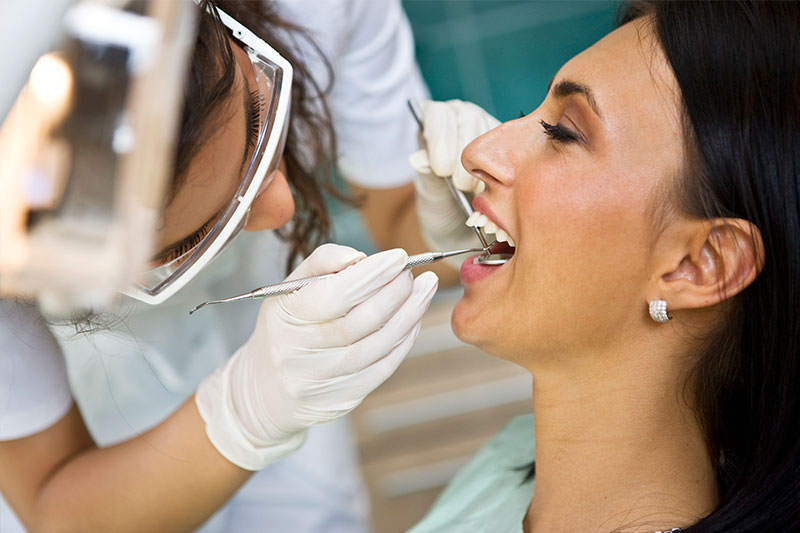
New Patient Exam Xrays and Regular Cleaning $67
Includes consultation, exam, and x-rays. In the absence of periodontal disease. New Patients Only
Make Appoinment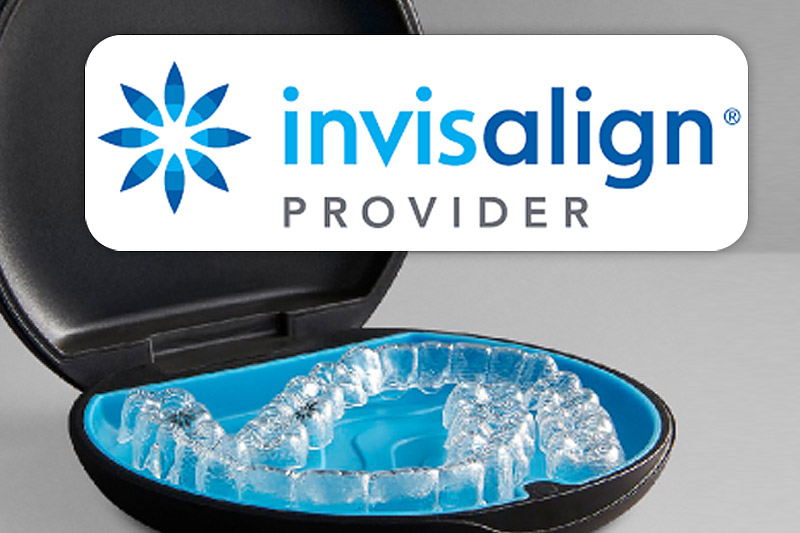
Invisalign
With advances in dental technologies, it is now possible to straighten your teeth discreetly without the use of traditional metal braces.
Learn more

